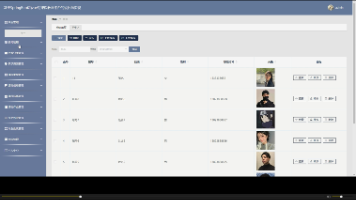【名人简历】牛顿
Physicist • Mathematician • Astronomer • Natural PhilosopherWoolsthorpe-by-Colsterworth, Lincolnshire, EnglandLinkedIn Profile | Email | Born: December 25, 1642 – Died: March 20, 1727Pioneering scient
Sir Isaac Newton
Physicist • Mathematician • Astronomer • Natural Philosopher
Woolsthorpe-by-Colsterworth, Lincolnshire, England
LinkedIn Profile | Email | Born: December 25, 1642 – Died: March 20, 1727
About
Pioneering scientist and mathematician whose groundbreaking work laid the foundations for classical mechanics, optics, and calculus. Known for formulating the laws of motion and universal gravitation, revolutionizing our understanding of the universe. Fellow of the Royal Society and Knighted by Queen Anne in 1705. Passionate about alchemy, theology, and advancing human knowledge through rigorous experimentation and mathematical rigor.
Experience
Warden and Master of the Royal Mint
Royal Mint, London, England
1696 – 1727
- Oversaw the Great Recoinage of 1696, reforming England’s currency system and combating counterfeiting through innovative metallurgical techniques.
- Implemented anti-counterfeiting measures, leading to the prosecution of over 20 counterfeiters, including the notorious William Chaloner.
- Managed mint operations, improving efficiency and accuracy in coin production, contributing to economic stability during a period of financial reform.
President of the Royal Society
Royal Society, London, England
1703 – 1727
- Led one of the world’s oldest scientific institutions, fostering collaboration among leading minds in natural philosophy.
- Oversaw the publication of key scientific works and resolved disputes, including the famous calculus priority debate with Gottfried Wilhelm Leibniz.
- Promoted empirical research and experimentation, influencing the scientific method still used today.
Lucasian Professor of Mathematics
University of Cambridge, Trinity College, Cambridge, England
1669 – 1702
- Delivered lectures on mathematics and optics, developing foundational theories in calculus and infinite series.
- Conducted groundbreaking experiments on light and color, leading to the invention of the reflecting telescope.
- Authored and published “Philosophiæ Naturalis Principia Mathematica” (1687), establishing the laws of motion and universal gravitation.
Fellow of Trinity College
University of Cambridge, Trinity College, Cambridge, England
1667 – 1701
- Conducted early research in mathematics, physics, and alchemy while pursuing independent studies.
- Developed binomial theorem and methods of calculus during the Great Plague closure (1665-1666), often referred to as my “annus mirabilis.”
- Elected as a Fellow at age 24, marking the beginning of a lifelong association with Cambridge.
Education
Master of Arts (M.A.) in Mathematics and Natural Philosophy
University of Cambridge, Trinity College
Graduated: 1668
- Focused on Aristotelian philosophy, Euclid’s geometry, and emerging scientific ideas.
- Conducted independent research leading to early discoveries in calculus and optics.
Bachelor of Arts (B.A.)
University of Cambridge, Trinity College
Graduated: 1665
- Studied under Isaac Barrow, excelling in mathematics and laying groundwork for future innovations.
Skills
- Classical Mechanics
- Calculus & Mathematical Analysis
- Optics & Spectroscopy
- Astronomy & Celestial Mechanics
- Alchemy & Chemistry
- Theology & Biblical Studies
- Metallurgy & Minting
- Scientific Experimentation
- Leadership in Scientific Institutions
- Problem-Solving & Innovation
Accomplishments
- Knighted by Queen Anne (1705) for services to science and the realm.
- Philosophiæ Naturalis Principia Mathematica (1687): Defined the three laws of motion and law of universal gravitation; foundational text in physics.
- Opticks (1704): Detailed experiments on light, color, and refraction; introduced the concept of white light composition.
- Invented the reflecting telescope (1668), improving astronomical observations.
- Co-inventor of calculus (independently of Leibniz), revolutionizing mathematics.
- Elected Fellow of the Royal Society (1672) after presenting my reflecting telescope.
Publications & Patents
- Philosophiæ Naturalis Principia Mathematica (1687)
- Opticks: or, A Treatise of the Reflexions, Refractions, Inflexions and Colours of Light (1704)
- The Chronology of Ancient Kingdoms Amended (1728, posthumous)
- Numerous papers on mathematics, mechanics, and theology submitted to the Royal Society.
Languages
- English (Native)
- Latin (Fluent)
- Greek & Hebrew (Proficient, for biblical studies)
Interests
Alchemy, Biblical prophecy, Astronomy, Philosophy, and the pursuit of universal truths.
更多推荐
 已为社区贡献4条内容
已为社区贡献4条内容







所有评论(0)